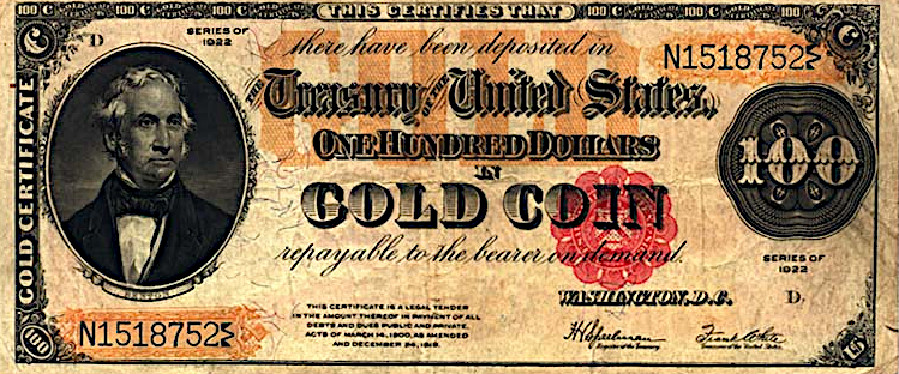|

WWIII3
Cyber Nuclear Holocaust is an original John Storm political thriller.
As
an obvious first step to disabling target nations, it makes sense for an
aggressor to first of all plant the idea of a cash-less society in
banking and political circles.
Politicians
will love the notion as will banks who want to control every aspect of
their citizen's lives. Russia and China will be laughing their socks off
at the crass stupidity of Western democracies who are obsessed with
taxation and taxing their subject slaves, to pay for their fat pension
and bonuses.
And
note there are no nuclear bunkers in most Western nations.
It
is a fact that no democracy has given any thought to how to keep
essential supplies of food and fuel flowing in the event of a series of
long term cyber attacks. Thus, Africa, Australia, America and Europe,
and perhaps even the Middle East, will be unable to feed their starving
populations and keep their transport systems operable.
This
is a basic first line of defence that seems to have escaped world leaders
in the free world. Where financial slavery is more important than
Homeland Security.
It
is also the logical first line of attack, prior to launching a nuclear
missile strike. Create civil chaos and communications difficulties.
Riots are sure to follow banks seizing up to flow of digital payments.
Especially for those nations dumb enough to have gone cash-less.
THE CASHLESS CONUNDRUM:
VULNERABILITY IN THE FACE OF CYBER ATTACKS
The allure of a cashless society is undeniable.
Convenience, efficiency, and reduced crime rates all paint a rosy picture. However, the complete dependence on digital transactions introduces a critical vulnerability:
cyber attacks. A nation that has phased out physical currency and lacks robust backup plans risks plunging its citizens into chaos in the event of a major digital disruption.
Aggressors
will take full advantage of any money vacuum to strike.
The potential for a cyber-attack to cripple a cashless society is far-reaching. Malicious actors could target financial institutions, disrupting online banking and rendering digital wallets useless. This would effectively halt all electronic transactions, leaving people unable to access their money to purchase essential goods and services. Imagine grocery stores unable to process payments, gas stations shutting down, and public transportation grinding to a halt – the consequences can be dire, particularly for the most vulnerable in society.
Beyond the immediate economic disruption, a cashless crisis could trigger widespread social unrest. Panic buying and hoarding could become rampant as people scramble for the limited remaining physical cash. Trust in financial institutions and the government could erode rapidly, creating a fertile ground for misinformation and exploitation.
Countries with established backup plans can mitigate this vulnerability. Maintaining a reserve of physical currency and implementing mechanisms for its emergency distribution are crucial. This could involve increased ATM cash loading, temporary relaxation of withdrawal limits, and authorizing alternative cash disbursement locations like post offices.
However, for nations that have completely abandoned physical currency, the path to recovery would be far more arduous. Re-introducing physical cash would take time, resources, and significant logistical effort. This delay could exacerbate the crisis, leaving people in a precarious position for an extended period.
The solution lies in a balanced approach. A cashless society offers undeniable benefits, but complete reliance on it creates a single point of failure. Countries transitioning towards a cashless system must prioritize the development of robust cybersecurity measures. This includes investing in secure digital infrastructure, enhancing customer authentication protocols, and fostering international cooperation to combat cybercrime.
Furthermore, maintaining a limited reserve of physical currency as a safety net is essential. This "analog failover mechanism" guarantees some form of economic activity can continue even in the face of a digital blackout.
The cashless revolution promises a streamlined future, but prudence dictates preparation for potential disruptions. A nation that prioritizes both technological advancement and a safety net of physical currency will be best positioned to weather the storm of a cyberattack, ensuring the well-being of its citizens even in the darkest of digital hours.
BEYOND THE BITS: RETHINKING EMERGENCY BARTER SYSTEMS FOR A CASHLESS
AGE
The rise of cashless societies offers undeniable convenience, but it also introduces a critical vulnerability – dependence on a digital infrastructure susceptible to
cyber
attacks. While complete abandonment of digital transactions is unrealistic, a solely digital system leaves societies ill-prepared for major disruptions. This thesis proposes a two-pronged approach: maintaining a limited physical currency reserve and exploring a well-designed emergency barter system based on essential commodities.
The first line of defense should be a strategic stockpile of physical currency. This "analog failover mechanism" ensures some form of economic activity can continue during digital outages. However, relying solely on physical cash has limitations. Minting new currency takes time, and large-scale distribution can be cumbersome.
This is where a well-thought-out emergency barter system becomes crucial. Such a system would establish a temporary framework for valuing and exchanging essential goods in the absence of a functioning digital or physical currency.
A return to a gold or silver standard, while potentially offering stability, might be impractical in today's globalized economy. These precious metals require significant physical resources and are susceptible to
short term price fluctuations. But gold always goes up in value in the
long term. Which is why China
is stockpiling bullion, in preparation for World War Three. Paper
money based on empty promises is useless in times of war.
A more viable approach could be a "basket of commodities" system. This would assign value to a selection of essential goods, such as wheat,
water, or even energy units like kilowatt-hours. The composition of the basket would be determined by a nation's specific needs and resources. Regularly updated exchange rates for these commodities would facilitate bartering during an emergency.
This system would not replace traditional currency but would function as a temporary safety net. It would help maintain some level of economic activity, particularly in essential sectors like
food production and distribution. Additionally, by establishing a clear value system for bartering, it could help avert panic buying and hoarding during a crisis.
The success of such a system hinges on several factors. First, clear and transparent communication from the government is crucial. Citizens need to understand how the barter system works and where to access essential goods. Second, establishing designated barter locations, like community centers or markets, would facilitate exchange. Finally, fostering a sense of community cooperation is vital.
In conclusion, while a cashless society offers benefits, it requires a contingency plan for disruptions. Maintaining a physical currency reserve and exploring a well-designed emergency barter system based on essential commodities would provide a vital safety net. This dual approach would offer some economic stability and help maintain order in the face of a major cyberattack, ensuring basic societal functions continue even when the digital lights go out.

"We have gold because we cannot trust governments," President Herbert Hoover famously said in 1933 in his statement to Franklin D. Roosevelt. The Emergency Banking Act, forced all Americans to convert their gold coins, bullion, and certificates into U.S. dollars, to stop the outflow of gold reserves during the Great Depression. The writing was on the wall, but nobody could read it.
SENSIBLE
PRECAUTIONS FOR INDIVIDUALS AND GOVERNMENTS IN THE EVENT OF WARS OR
CYBER ATTACKS
FOR INDIVIDUALS
- Cash on Hand: Keep a small amount of emergency cash at home for immediate needs.
-
Alternative Banking Methods: Check if your bank offers alternative withdrawal methods in case of digital outages.
SOME
OPTIONS MIGHT BE
Using
a Safe Deposit Box. If you don't have one, consider purchasing have a safe deposit
box or safe, and consider keeping some cash there for emergencies. This
might include a stock of gold coins for larger transactions.
Limited ATM Functionality: In some situations, ATMs might still function with limited features, like dispensing cash without requiring a digital connection. However,
local bank branches might keep (isolated) computer stored records for local
customers, to be able to supply cash, where ATMs that rely on official centralized
bank communications for updates during an attack, would freeze.
Important Note: During a cyber attack, banks might prioritize security measures and temporarily restrict ATM withdrawals or branch access.
FOR COUNTRIES
Governments and central banks might implement temporary liquidity measures to ensure cash flow. This could involve:
-
Increased ATM cash loading.
- Relaxing withdrawal limits (temporarily).
- Enabling cash disbursements at alternative locations like post offices.
PUBLIC COMMUNICATION
Clear and timely communication from governments is crucial. This would involve informing citizens about the situation, outlining alternative access to cash, and debunking rumors.
But, truthful public announcements should only be broadcast. Making it
essential that politicians should be prosecuted for deceiving the
electorate. As in painting a rosier picture than the actual truth of any
given situation.
Politicians
who routinely lie to the electorate, might then not gain power by
deception. As in Boris Johnson's victory based on lies about Brexit and
proroguing Parliament.
SOME ADDITIONAL TIPS
Stay Informed: Monitor official bank and government channels for updates during a cyber attack.
Be Cautious: Be wary of scams. Criminals might take advantage of the situation to launch phishing attacks or spread misinformation.
By planning and staying informed, you can be better prepared to access cash in a difficult situation.
CHAPTERS
| CHARACTERS
| MEDIA
|
MOVIE REF |
SCREENPLAYS
|
